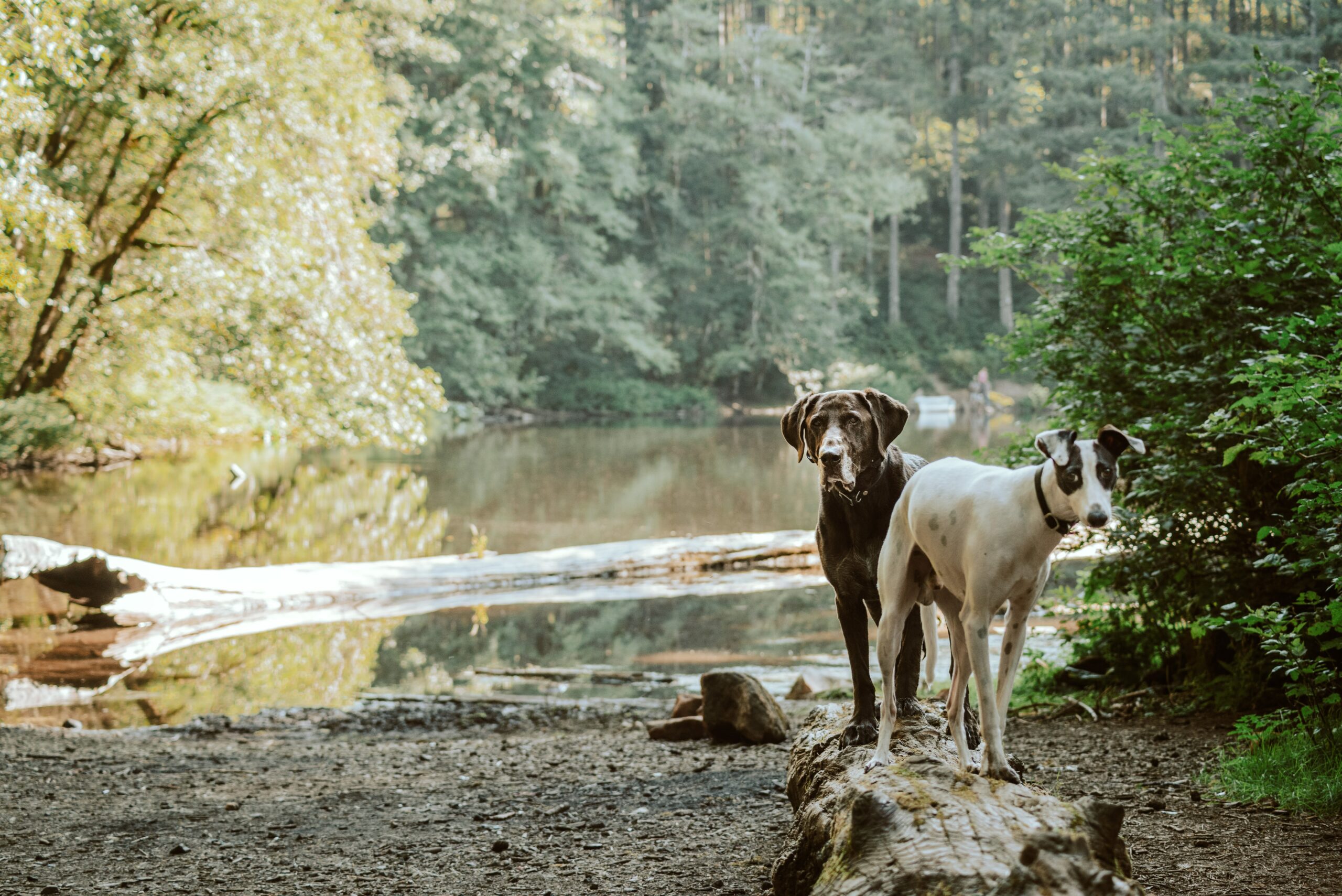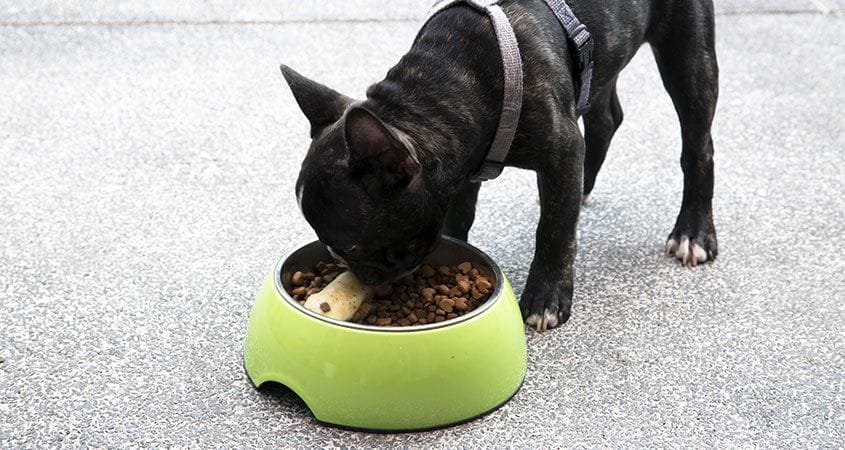Dogs lick and chew excessively, you should investigate the underlying cause ,and determine if visiting the vet is necessary. Because there are so many probable causes, the issue is complicated. Dogs will lick their paws from time to time as a regular component of self-grooming.
Pain:
Dogs lick and chew their paws as a way of relieving joint pain, ligament sprains, bony growths, and fractures. There’s a chance the pain is coming from somewhere else that you can’t get to. The affected area may be itchy and swollen. Orthopedic issues can be made more bearable with the use of joint supplements and oral drugs.
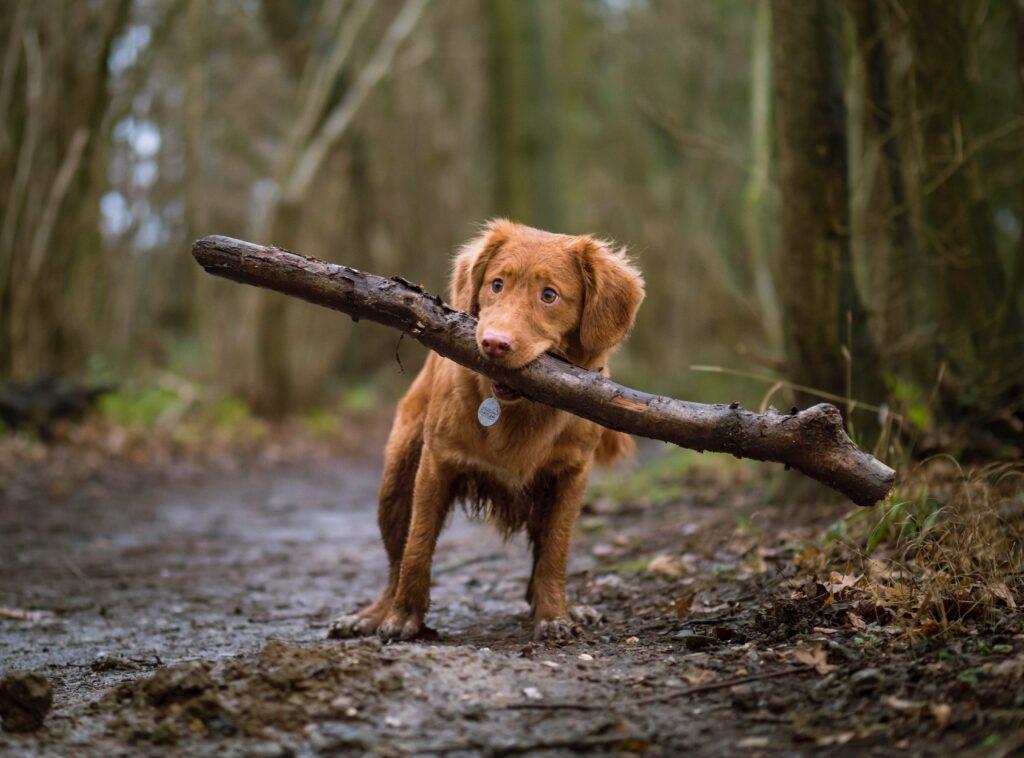
Bites from Insects:
To relieve the itching and swelling, Dogs lick and chew affected areas. While playing outside, your dog may have come into contact with an insect that bit or stung him. Treatment options include antihistamines and topical steroids (used topically).If you believe your dog has been stung or bitten by an insect, seek immediate veterinary attention.
- Their Paw is Clogged with an Item.
- Look for any foreign things on your dog’s paw.
The toes or on the toes’ pads are commonly encountered and may be covered under the fur. Sticked-in-the-paw objects such as thorns or pebbles might cause licking as your dog strives to remove the irritant. Once the source of pain has been eliminated, the irritation should go away.
Flakes/Dandruff:
Dog-specific moisturizing cream rinses and omega-3 oil supplements may help alleviate the itching caused by dry skin. Dry skin on a dog might show up as flakes in the fur. It is more common in specific climates or seasons.
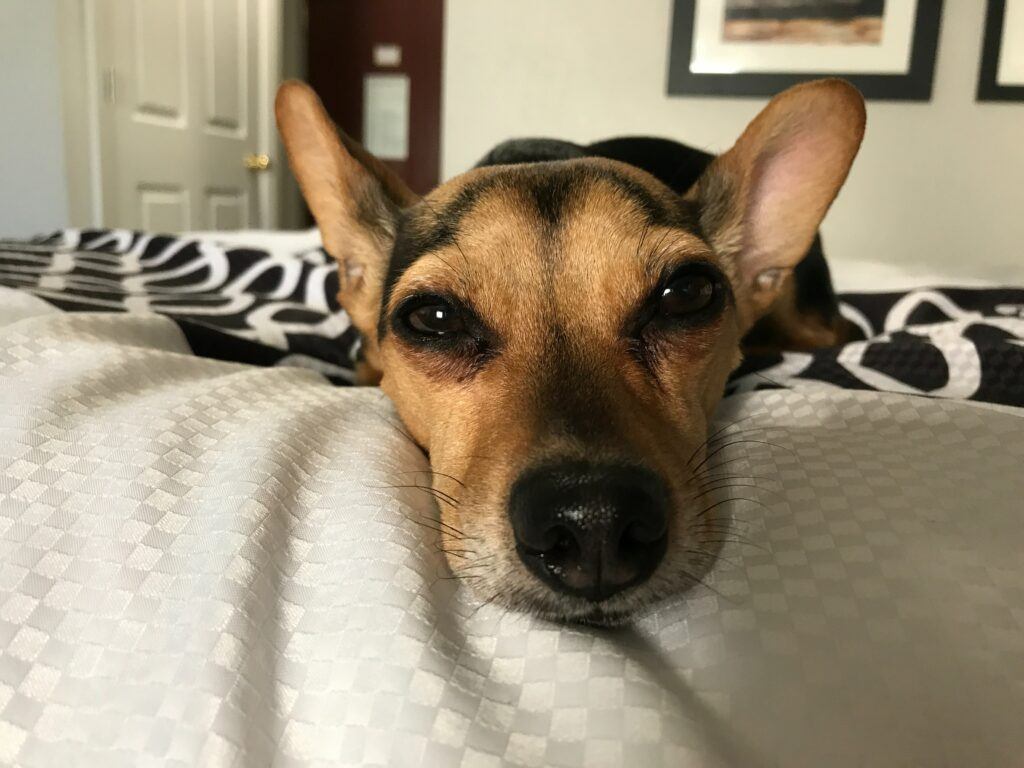
- Areas of high heat.
- Repetitive licking causes hot spots, which are inflammatory lesions on the skin.
- Hair loss is expected when the skin is red, irritated, and damp.
- It usually occurs overnight as a reaction to extreme itching.
While the origin of a hot spot on a dog’s paw is being investigated, an over-the-counter anti-inflammatory and antibacterial spray for dogs may be helpful. Hydrocortisone sprays applied topically may also be beneficial.
Infection caused by Bacteria when Dogs lick and chew their paws :
When the skin is injured, regular surface bacteria can outgrow themselves, resulting in an infection. Regular use of a medicated dog wash or wipe can help restore your dog’s skin’s proper balance of organisms. Scabs may accompany other symptoms such as redness, dry skin, and thinning hair.
Yeast:
When yeast is allowed to grow out of control, it can cause itching, odor, and a generally greasy feeling on the skin. Dogs lick and chew , if your dog has a yeast infection on his paws, you can treat it with medicated dog shampoos and wipes. This medication is used in conjunction with an antifungal to treat skin infections caused by yeast.
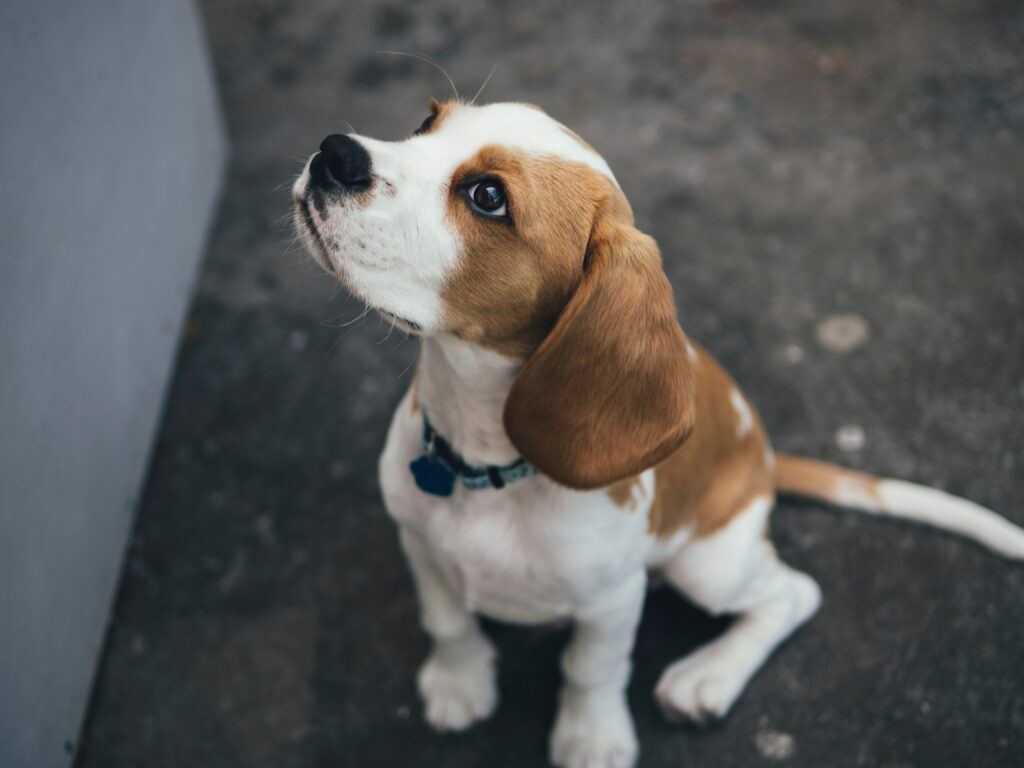
Allergies to dogs’ paws:
An itchy, swollen, or red paw from excessive licking may indicate allergies. The environment, food, or an allergen that comes into contact with your dog’s skin can trigger allergies in your pet. Can reduce your dog’s skin allergies by bathing your dog or cleaning their paws after being outside. Allergies might cause your dog’s paws to be itchy. Topical hydrocortisone creams or sprays for dogs are available and may help relieve the itching momentarily.
Injuries to the Toe Nails:
It could be an indication that your dog has an infected toenail or that their nail has been partially pulled off. It can happen if you trip over something like a blade of grass or a piece of clothing. Swollen dog paws and pain are common symptoms of a dog nail infection. When the damaged section is removed correctly, the toe will improve. Anti-infective and anti-inflammatory drugs may also be helpful. Consult your veterinarian for assistance in removing the torn nail and prescription treatments.
Nails that have become overgrown:
When a dog’s nails are overgrown, it might be uncomfortable for him to move, which leads to him licking his paws a lot. Toenails that have grown too long will hang past the dog’s toe pads and may even curve back into the paw pads.
Nail clipping regularly can assist in mitigating this risk. If you don’t want to or can’t cut your dog’s nails because they are too long, ask your veterinarian for help.
Ticks and other Insects and Parasites:
Parasitic insects feed on dogs’ blood and burrow into the pads of their feet. They are common in woodland places and in brushy locations where dogs run free. Your Dogs lick and chew the sore spots as a result of the discomfort. Using a tick-removal instrument, carefully remove the entire tick to ensure that the mouthparts are free to fall out. Make sure your dog is treated against fleas and ticks to avoid this.
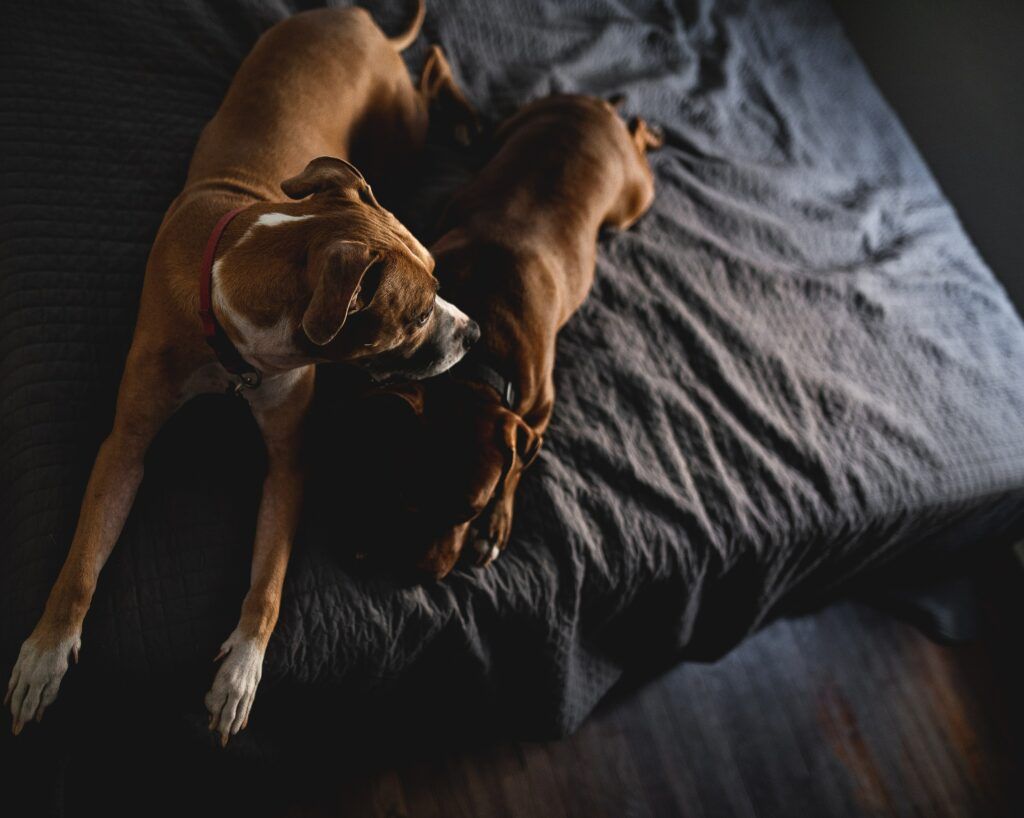
Unhappiness and Idleness:
- Dogs lick and chew their paws excessively are frequently anxious or bored.
- Dogs find comfort in calming movements.
- A lick granuloma or hair loss may be present in the affected area.
See a veterinary behaviorist or your veterinarian understand the problem better and develop a strategy for your dog’s recovery. Synoptic with extra Banamine is a prescription drug that treats lick granulomas.
What Should I Do If My Dog Constantly Licks or Chews His Paws?
Dogs lick and chew due to a common cause. Allergic reactions to allergens in the environment or food are common causes of your dog’s continuous paw licking and chewing. Environmental allergies commonly emerge in dogs between the ages of 2 and 4 when exposed to specific triggers.
Allergic reactions can occur at any time of year, although they are more common in the spring and fall when exposed to more pollen and grass pollen. Food allergies commonly appear in puppies under the age of one year. They appear in response to the dog’s protein intake, and they persist throughout the year. In some people with food allergies, itchy cheeks and itching ears are a sign of the allergy.

